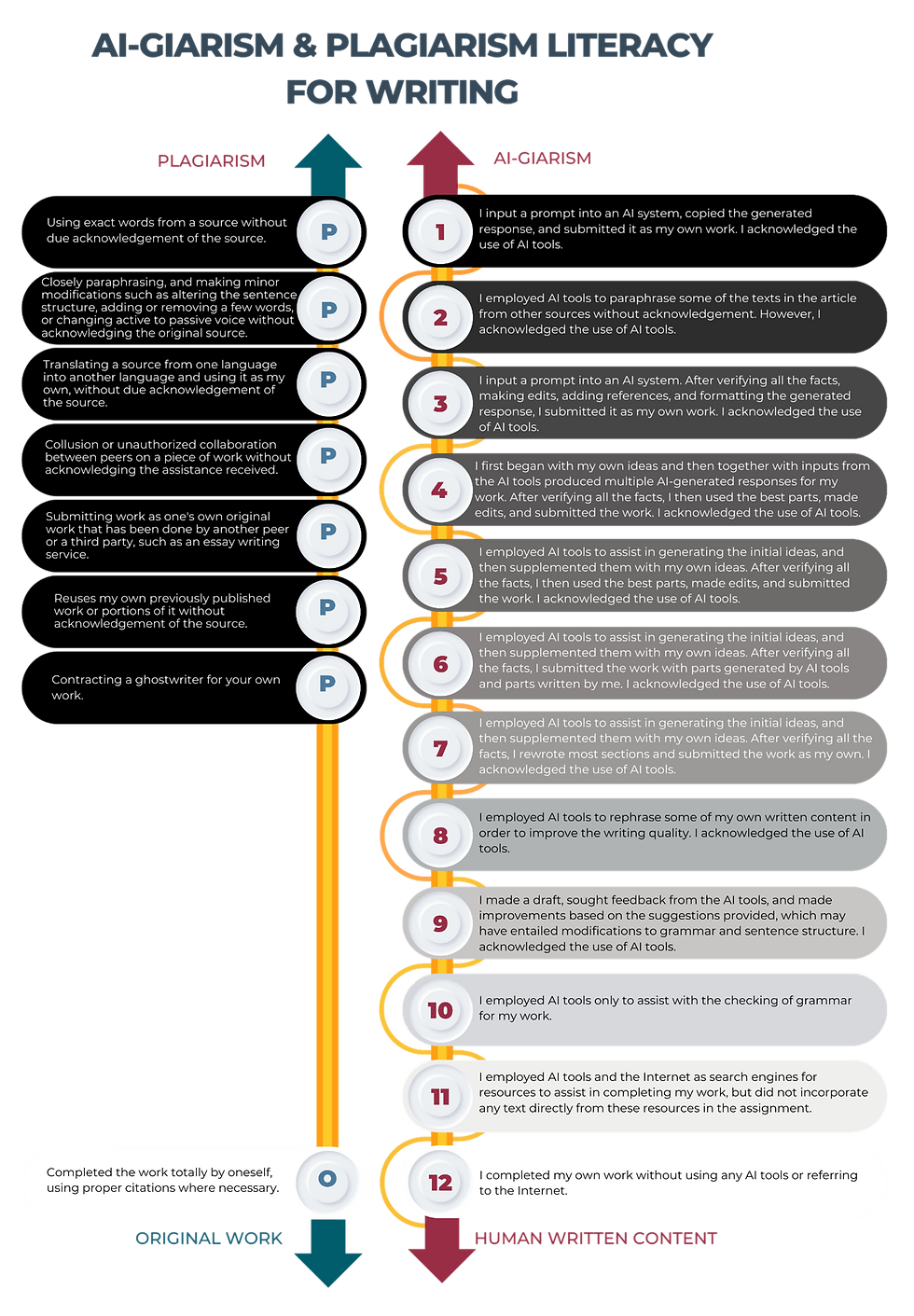Exploring AI-giarism and AI Guilt

Exploring AI-giarism
Our team is dedicated to advancing the field of AI education through the development of innovative surveys and instruments that delve into critical issues such as AI-giarism and AI guilt. These research endeavours aim to shed light on the complex dynamics surrounding the ethical and responsible use of AI technologies in educational settings.
AI-giarism: Understanding a New Frontier in Academic Dishonesty
AI-related plagiarism, or “AI-giarism,” is a novel form of academic dishonesty that where AI technology is used to replicate or generate content without proper attribution. In a study of university students to examine their attitudes towards traditional plagiarism and AI-giarism, Professor Chan (2024a) found that participants expressed strong disapproval towards the direct and blatant use of AI tools to complete academic assignments in full. However, there was a notable gap in awareness of dishonest behaviours regarding subtler instances of AI-giarism, such as scenarios where AI is employed to create and submit work without clear citations or acknowledgments.
The study introduced a nuanced spectrum of AI-giarism behaviours, urging a re-evaluation of perceptions and practices surrounding academic integrity in the present digital age. Moreover, this study developed a novel instrument to assess people’s views on AI-giarism. Overall, there is a necessity for enhanced education on plagiarism as well as the formulation of robust policies to address this evolving challenge in academic settings.
Professor Chan’s paper on AI-giarism can be found here: https://link.springer.com/article/10.1007/s10639-024-13151-7
AI Guilt: Unpacking Emotional Responses to AI Integration in Education
The concept of “AI Guilt” refers to the potential emotional discomfort experienced when using AI tools to do academic tasks traditionally done by humans.
A recent study by Professor Chan (2025) investigating AI guilt and its underlying factors revealed three core dimensions: perceived laziness and authenticity, fear of judgment, and identity and self-efficacy concerns. These dimensions underscore the emotional and psychological impacts of integrating AI technologies into educational practices, and the findings underscore the imperative of addressing these emotional responses to foster a culture of ethical, responsible, and equitable AI usage that enhances students’ learning experiences.
Professor Chan’s paper on AI Guilt can be found here: https://link.springer.com/article/10.1007/s10639-025-13629-y
Our work and accompanying survey instruments on AI-giarism and AI guilt surveys has garnered global recognition and adoption, offering invaluable insights to inform strategies for promoting ethical and responsible AI utilisation in educational settings. Through ongoing research and collaboration, we strive to navigate the complex terrain of AI ethics and ensure that AI technologies contribute positively to the advancement of education for all.


